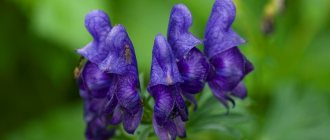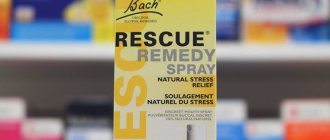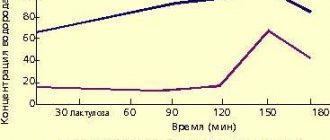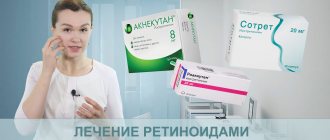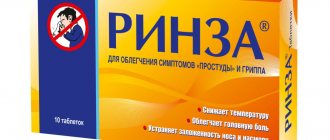Monkshood (Aconitum napellus) is a turnip-shaped fighter.
This is a perennial plant from the ranunculaceae family. It is also popularly known as “root fighter”, “wolf fighter”, “dog potion”.
The properties of this plant were known already in ancient times, its name is covered in legends. According to one of them, aconite grew from the poisonous saliva of the terrified hellish dog Cerberus, whom Hercules led from the underground dark kingdom to the earth flooded with the rays of the sun.
The fighter is poisonous. It contains aconitine, which affects the central nervous system and causes convulsions and paralysis of the respiratory center.
In folk medicine, aconite is used for neuralgia, migraine, and rheumatism.
PHYSIOLOGICAL ACTION
Leaving aside Aconite
, which paralyzes the nervous system and leads so quickly to death that symptoms useful to us for therapeutic purposes do not have time to develop, we will study only the results of the action of
Aconite
on a healthy person, paying special attention to disorders of the circulatory organs, which is the most important.
Aconite tincture
in moderate doses, depending on the sensitivity of the subject undergoing the test, produces first an increase in cardiac activity, causing a full, firm and rapid pulse, a significant increase in temperature and blood pressure.
Here is the main action of Aconite
which the homeopath must never forget and which gives him the key to the main therapeutic indicators.
A sharp stimulation of blood circulation causes the following symptoms: tinnitus, dizziness, headaches. The soft palate, uvula, tonsils, cheeks, ears, as well as the connective membrane of the eyes are hyperemic. Capillaries rupture from tension, resulting in bruising, ecchymoses, hematomas and nosebleeds. The whole face turns red due to a rush of blood to the head, there is a tickling in the larynx with a feeling of roughness. The eyelids and eyeballs are hyperemic, lacrimation intensifies. The laryngoscope shows hyperemia of the entire mucous membrane of the larynx, which can spread to the trachea. Then there is secretion of the visible mucous membranes, accompanied by chills, followed by dilation of the capillaries of the skin and, finally, sweating.
Depending on the dose of Aconite
produces two types of fever: one which we have just described, with symptoms of inflammation in the form of redness of the face, rapid and full pulse, increased temperature, and the other with a pale, emaciated face, coldness of the body and weakness of the pulse.
On the nervous system of warm-blooded animals, high doses of Aconite
They act like this: first, direct slight stimulation of the bulbar brain centers, then a reflex action due to irritation of the nerve endings of various excretory organs (lungs, bronchial mucosa); this reflex action causes excitation of the vagus and splanchnic nerves, which is ultimately followed by paralysis.
Aconitum
causes a disorder of pain sensitivity, mainly in the area of the trigeminal nerve.
Aconitum
also acts on motor nerves, but not in the same way as curare - muscle contraction stops along with the motor function of the nerve.
Before the onset of paralysis, Aconitum
causes spasm and trismus, a common symptom in
Aconitum
.
The following symptoms are the result of the action of Aconite
on the nervous system: various, but mainly jerking and shooting pains in the region of the branches of the trigeminal nerve, in the muscles of the chest, throughout the body; increased sexual feelings; hyperesthesia of the olfactory nerves, pressure in the pit of the stomach, dizziness with fainting when standing up and moving to a vertical position. Feeling of numbness and goosebumps in the lips and nose, painful tingling in the tip of the tongue; a feeling of tightening of the skin of the face and squeezing in the limbs, as if they were tightly tied with a rubber bandage. At the same time, the subject becomes very sensitive to wind and experiences a purely subjective sensation of cold. Memory and thinking become sharper. Restless sleep, nightmares, extremely unstable mood, deep melancholy.
Breathing becomes irregular in number and rhythm, which leads to symptoms of suffocation. These disorders result from spasms of the muscles of the chest and diaphragm.
Aconite works
and on the digestive apparatus.
Among the main symptoms, we note severe thirst, nausea and vomiting, a feeling of painful heaviness in the stomach, colic and bloating. Aconitum
causes diarrhea rather than constipation;
it is preceded by colic and rumbling. The stool is greenish or whitish, as in jaundice. Aconitum
poisoning sometimes presents a picture of cholera disease.
Aconitum
increases all kinds of secretions: the amount of urine increases and sweat becomes profuse.
Aconitum
on certain organs and tissues : the larynx, heart, sclera, pleura, peritoneum and joints.
It is extremely important to note: all those caused by Aconite
Symptoms may disappear within a few hours, and the body begins to function normally again.
The stronger the dose and the more intense its effect, the faster the depression follows the symptoms of excitement. Hahnemann well noticed and interpreted this phenomenon. In his Medicine Science we read: “The exacerbation of memory is immediately followed by the opposite symptom of weakness of memory,” and regarding this contradiction he adds: most of the symptoms of Aconitum
, which would seem to exclude each other, are only alternatives (the phenomena of depression follow excitement). , and
Aconite
may be useful in either one or the other of these symptoms.
During autopsies, there is a rush of blood to the lungs and brain, inflammation of the gastrointestinal tract, serous effusions in the pleura, arachnoid membrane and peritoneum; nodular lesions of the mitral valve have been observed in animals exposed to prolonged exposure to Aconitum
.
Instructions for use, dosage for adults and children
Most often, aconite is taken in the form of homeopathic granules. This is done 30 minutes before meals or an hour after meals.
The number of granules depends on the disease. For example, if a person has the flu or acute respiratory viral infection with a high fever, he can consume 5 - 8 granules up to 5 times a day. Doctors also prescribe aconite for children, but in a different dosage.
- In this case, the child is given 1–3 granules.
- After two days, the intake is reduced to 3 times a day. In general, the granules are taken in a course lasting 2 weeks.
When treating chronic diseases, aconite is used for 4 weeks, first as described above, and for weeks 3–4 – 8 granules 2 times a day.
Aconite tincture can only be drunk by adults.
The intake scheme is called a “slide”. On the first day, dilute 1 drop of tincture in 0.5 glasses of water, on the second day – 2 drops. Next, increase the amount of product used to 10 drops. Then the countdown begins: 9 drops per day, then 8, 7 and so on.
When the course is completed, experienced herbalists advise brewing and drinking agrimony for 2 weeks - it will cleanse the liver of toxic substances contained in aconite.
TYPE
Aconitum
It is especially indicated for children, young people and adults in whom the arterial circulation functions quite normally.
It corresponds mainly to active, full-blooded, sanguine subjects who react to their surroundings with great force; they have all the symptoms of the arterial flushes of Aconite
.
It doesn’t hurt to also note that Aconite
Best suited for those with dark complexions, brown or black eyes and hair.
Medicine based on "Aconite"
Very often on the shelves of pharmacies you can find granules from the tincture of “Aconite”, diluted according to homeopathic methods, dynamized and applied to sugar granules.
It is also possible to take Aconite tincture directly. This drug should be taken with great caution. If the tincture gets on the skin, wash it thoroughly with water and soap. If it gets into the eye, then you need to contact an ambulance or an ophthalmologist urgently.
At the beginning of taking Aconite, the symptoms may intensify, but after a few days the patient will feel much better. So temporary deterioration is not a reason to discontinue the medication. But it is still necessary to constantly consult with your doctor: this way he can adjust the dosage.
CHARACTERISTIC
1. Extreme anxiety and agitation with excessive melancholy and fear of death. This condition occurs in severe cases of inflammatory fevers, in certain heart diseases and in exophthalmic goiter.
This fear, as well as the illness that causes agitation in the patient, are characteristic of this remedy.
2. Fear of crossing the street, going into society, fear that something might happen, fear is constant, incomprehensible, inexplicable. Here we note that Aconite
- an excellent remedy for diseases developed as a result of fright, recent and distant (
Opium, Ignatia, Veratrum album
).
3. Diseases and pains that appear after exposure to cold wind. Other chief remedies related to dry and cold wind: Bryonia, Causticum, Hepar sulfur
and
Nux vomica
.
4. The severity of symptoms that appear suddenly and immediately develop with great severity.
5. Worsening of symptoms: agitation, pain, melancholy, etc. at night, especially after midnight.
Aconite pain
unbearable, sharp, tearing, accompanied by extreme excitement, melancholy, fear: the patient rushes in different directions, being unable to bear this pain or withstand touch.
The pain worsens towards night, around midnight, as do the symptoms of this remedy in general.
They are replaced by a feeling of numbness, tingling, goosebumps.
And the etiology is most important: exposure to dry, cold air. Stools are frequent, scanty, with tenesmus and unbearable urge.
Diarrhea with gastric mucous or chopped spinach-like stool in children during the hot season. Relief occurs after sudden release of mucus or blood.
Menstruation: very heavy, long, sometimes short-lived or replaced by nosebleeds in strong and full-blooded women.
Sudden stopping due to fear, anger, strong excitement, even joy, or exposure to a dry cold wind.
Important Features
"Aconite" is a fast-acting medicine.
They treat acute fever, non-limiting and intense illnesses. Treatment with Aconite is like a storm that sweeps away everything in its path. As a rule, the patient does not even understand what is happening to him. For chronic diseases, Aconite is not suitable, including for secondary fevers. If in a short period of time the patient does not feel better from the drug, then “Aconite” will not help him.
Here are a few examples of when it can help:
- It is used for eye inflammation that has developed so quickly that it is not even clear how this could happen in a short period of time. The eyelids swell, it is difficult to open the eyes, only with the help of special forceps; hot tears fall from the eyes, but no pus;
- Suddenly the ears become inflamed. The pain is tearing, throbbing. This pain begins in the evening if, for example, a child from the street comes home during the day. The reason for this: he was not dressed warmly enough, was exposed to a cold wind, and now he is screaming, holding his ear with his hand. Such a child cannot stand noise or music;
- A runny nose is accompanied by severe headache and occurs at night after hypothermia;
- Severe intense shooting toothache. The pain occurs as a result of hypothermia. Supporters of homeopathy know that in this case it is better to place “Aconite” on cotton wool and hold it in your teeth, the pain will stop. For safer treatment, it is better to take a diluted drug orally;
- Also, people were very frightened of something, now they stutter or have other physiological problems - “Aconite” can solve all this.
But there are chronic diseases that are treated with this remedy. Such diseases include a panic attack, a haunted fear of death.
"Aconite" will not help in the fight against infection. Do not give Aconite to any form of infectious disease as it does not cure them.
Fever is different from fever. Not all fevers are cured by Aconite. It cures fever, which is not accompanied by any symptoms of weakness or asthenia. Symptoms requiring Aconite: dry, hot skin and a hard, racing pulse. As a rule, such fever is accompanied by debilitating anxiety, insomnia and fear of death. She is relieved by sweat, which, in turn, is hot and abundant. Next, you need to understand that fever is often not an independent disease. "Aconite" can relieve fever, but the disease itself will not cure. For example, for a disease such as scarlet fever, the drug should not be given, only in the most nervous cases and with great caution, so as not to harm the patient.
MAIN INDICATIONS
Aconitum
- the best remedy for inflammation, flushing and arterial hyperemia; This is an excellent anti-inflammatory, but it corresponds only to the beginning of inflammation (formative period), losing its indications as soon as the rush of blood is localized, transudate, hepatization or tissue changes appear.
It is necessary to know for sure that Aconite
corresponds mainly to illnesses due to exposure to dry cold wind, due to fear, cessation of sweating; those cases that are characterized by the severity of symptoms, violent, sudden, acute onset with fever - that is why it is primarily an important remedy for inflammation and congestion of the lungs, especially in plethoric, sanguine and strong subjects.
ACTIVE IDIOPATHIC CONGESTIA (Voile, Potena, Granchet forms) with a full, hard, galloping pulse and increased blood pressure. On the contrary, Aconitum
absolutely contraindicated for passive adynamic hot flashes with a decrease in blood pressure, such as typhus.
And with hot flashes due to asystole with a threadlike pulse with a decrease in blood pressure, it is even harmful. The place of selective action of Aconite
is the upper lobe of the left lung.
If the flush could not be stopped by Aconitum
, and if inflammation of the tissue has developed, then it loses its strength and
Bryonia
can take its place in pleuropneumonia, and
Phosphorus
in splenopneumonia.
FOR BRONCHITIS, PLEURITIS (as well as inflammation of the pelvic peritoneum) Aconitum
applicable at the beginning; the indication for it is determined by the nature of the fever, and in case of damage to the respiratory tract, cooling is the cause of the disease.
Runny nose: there is not only painful dryness in the nose, but also dryness and a feeling of heat in the skin, and a flow of blood from the periphery to the center.
LARYNGOTRACHEITIS Aconitum
Belladonna
is more suitable for children who often catch colds when running around and perspiring ).
Aconitum
cold - cold when walking in an open carriage, during chills, while staying in cold rooms.
Here are the indications of Aconite
.
An excellent regulator of blood circulation, Aconitum
is also indicated for hemoptysis.
Nosebleeds with increased blood pressure.
HEMOPTYSIS with anxiety and fear. Aconitum
corresponds to congestive hemoptysis at the beginning of tuberculosis, caused by a sudden cold: an alarm signal that should not be neglected.
SONGINS with fever, burning, purple throat, excitement and melancholy; We must not forget about the etiology - the common cold.
RHEUMATISM. Aconitum
- the main remedy against acute articular rheumatism.
In acute local manifestations of rheumatic diathesis during a febrile period, Aconitum
is often a very effective remedy for lumbago (
Bryonia
,
Rhus
,
Actea
,
Nux vomica
), scleritis (
Spigelia
), pleurodynia (
Ranunculus bulbosus
), sciatica and other neuralgia of a rheumatic nature.
COLD FACIAL NEURALGIA affects mainly people prone to hot flashes and congested. Aconitum
specially indicated when there is a strong congestion to the affected part, usually the face, which in such cases becomes red and swollen. A crawling sensation in the affected part; the pain drives the patient almost to despair. These pains, extremely sharp at first, are always accompanied by a crawling sensation and numbness.
HEART DISEASES. Aconitum
- An excellent remedy for aortitis and in the initial stages of endocarditis. Palpitation with a feeling of melancholy. Attacks of sharp pain spreading from the heart to the left hand and accompanied by a feeling of numbness and crawling in the fingers.
INCREASED BLOOD PRESSURE without organic damage. Nothing beats Aconite
by the speed of action in cases of acute increase in blood pressure.
Aconitum
such increases without damage irrevocably, while in patients with arteriosclerosis it only decreases for several days, weeks, maybe months, since painfully altered arteries in these cases fatally lead to an increase in pressure again.
Equally Aconite
appears to be effective AT THE BEGINNING OF ENDOCARDITIS, PERICARDITIS AND ARTERITIS with increased pressure. It also retains all the power of its action in acute or subacute cases of hot flashes during chronic diseases.
Smokers under the influence of nicotine may experience a spasm of the vessels supplying the large arterial trunks (aorta). As a result of malnutrition of the vascular walls, a general circulatory disorder in the form of palpitations, arrhythmia and even angina attacks can be observed. In all such cases, Aconite
often gives brilliant results.
IN OVERSTRESS OF THE HEART IN ATHLETES, when an increase in blood pressure is followed by asystole and a dangerous decrease in blood pressure, giving all phases of Aconite
.
ARNICA acts more slowly in the same cases.
SEVERE JAUNDICE. Pathogenesis of Aconitum
gives symptoms of severe jaundice (icteric discoloration of the skin, hemorrhages, fever).
But Phosphorus
reproduces these symptoms even better, thus
Aconite
and
Phosphorus
are two remedies for severe jaundice;
here Aconitum
is used in low dilutions.
HEADACHE. Congestive headache, with a feeling of fullness, as if a weight were pressing on the head in the forehead. Headache with a feeling of heat, heaviness, throbbing, splitting, after a cold or exposure to the sun. Sensation of flushing with intense heat, accompanied by violent palpitation of the heart, pulsation of the arteries, in the temples, with fever, melancholy, fear.
COUGH - usually dry and short whistling, as with croup, worse in the evening, at night from dry cold wind or draft, smoking, drinking. Nothing seems to make it easier. It is accompanied by shortness of breath, acute pain, fever, agitation and melancholy. It appears suddenly in full-blooded children who have caught a cold during the day; during the first sleep between 21 and 23 hours, before midnight; cough is hoarse, strong, almost immediately suffocating; the child grabs his throat with his hands and suffocates; he is excited, sad and afraid.
Cough Aconitum
or no sputum at all, or with a small amount of viscous mucus.
Auscultation does not give anything here, because Aconite
corresponds only to the simple stage of irritation, which is immediately followed by the stage of true tide.
FEVER. Aconitum
useful at the onset of any acute fever that is not too severe, following a cold, characterized by redness of the face, which turns pale on rising from bed, thirst with the need for large quantities of water, and especially severe dryness of the skin, the functions of which seem to have ceased due to spasm of the capillaries.
In these same cases, Aconitum
, due to its stimulating effect on the circulatory system, causes a rush of blood to the surface of the skin and, consequently, the appearance of a relieving sweat.
As soon as the patient begins to sweat, the indications for Aconite
are over.
Retention of urine in children at the beginning of inflammation points precisely to Aconite
.
Thus, Aconite
- a remedy against sthenic or simple inflammatory fever. An insignificant effect is obtained only with septic fevers and accompanying local inflammation.



